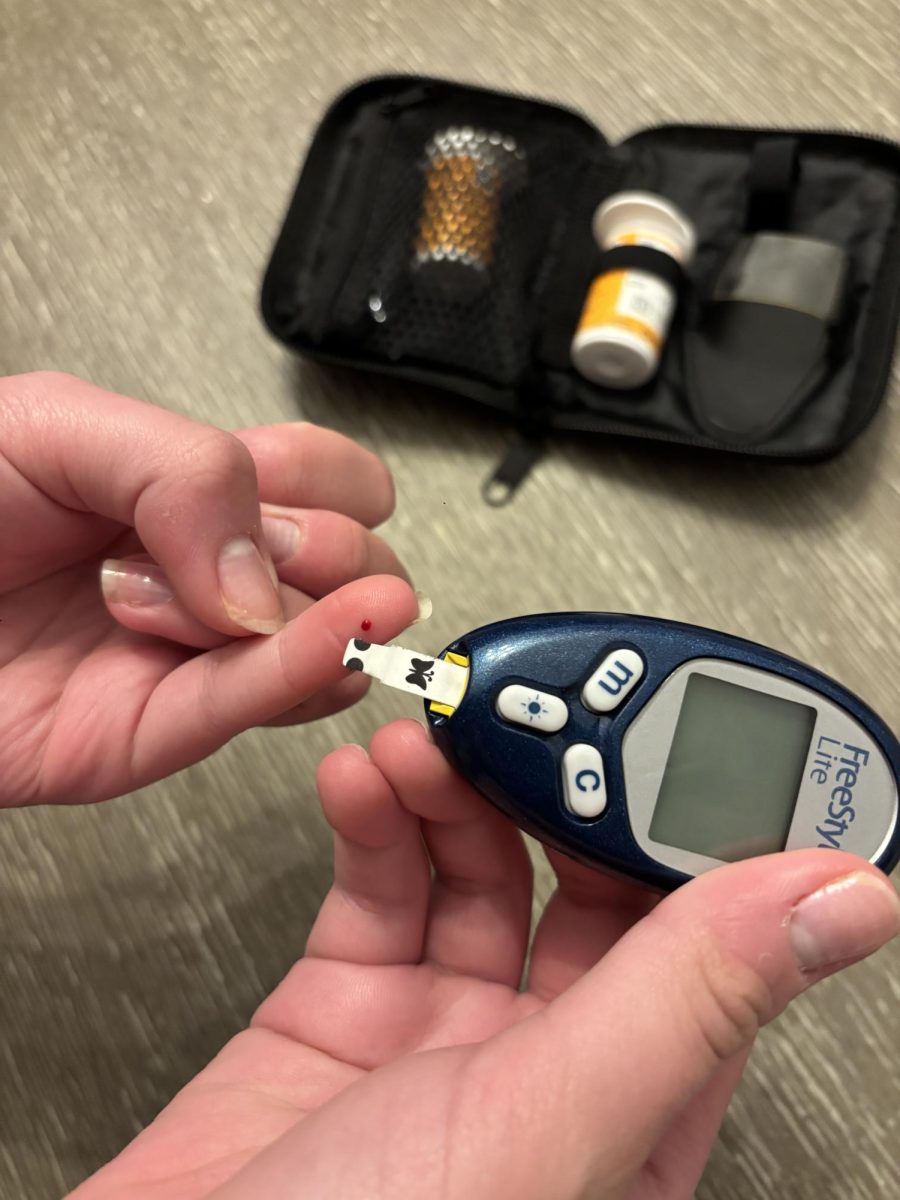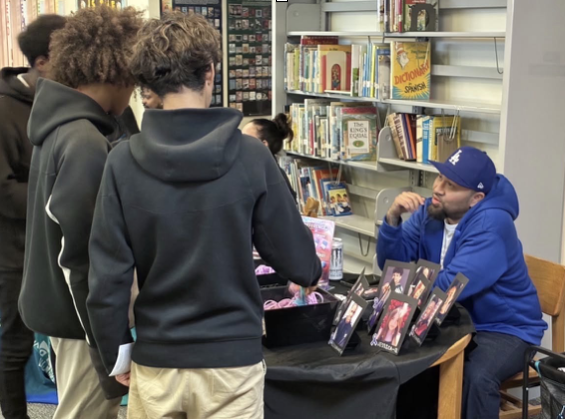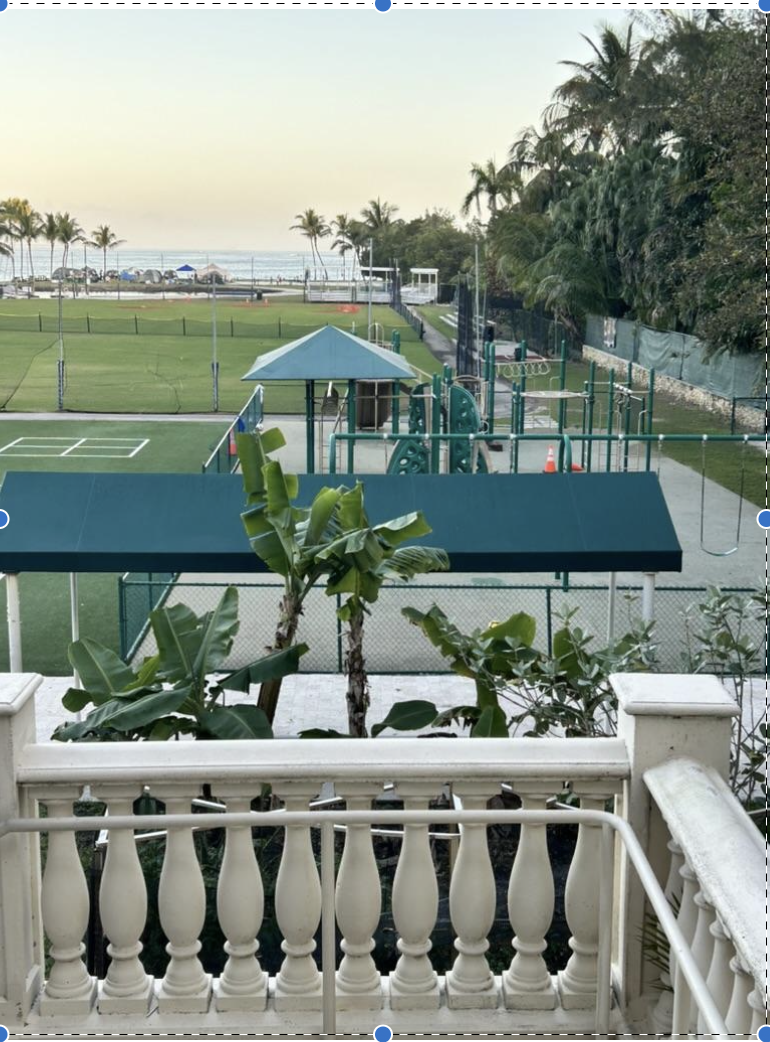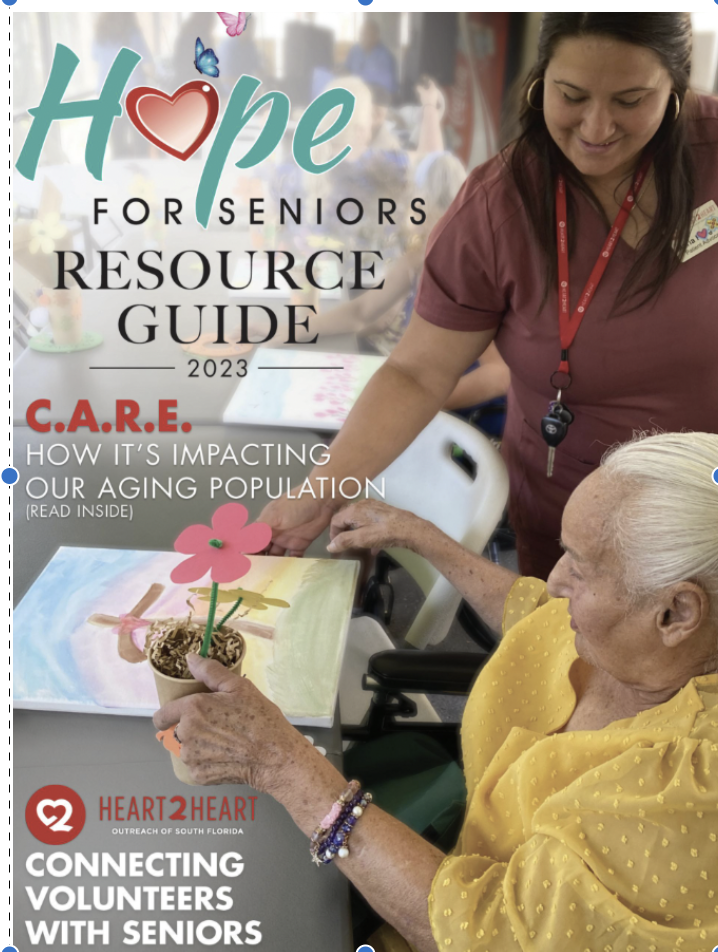Type 1 diabetes is a lifelong condition that affects millions of people, including students and families within the ILS school community. To better understand its impact, the Royal Courier conducted a survey gathering insights from those with personal connections to the disease, whether through parents, siblings, or close friends. The responses shed light on the challenges faced, the level of awareness within community, and how ILS can foster a more informed and supportive environment. This story will present the results of the survey, highlighting key findings and personal experiences. The next installment will further explore what these results mean and discuss ways to increase awareness and advocacy for those living with Type 1 diabetes.
The following images provide the results of responses asked within the survey titled “Type 1 Diabetes: Awareness, Education, and Personal Experience,” sent out on January 13. These responses have been gathered over a 70 day period:
A majority of the responses came from the Juniors, with nine participants. Second, the Seniors with a total of seven respondents. Third, the Freshmen, with six contributors. Next, sophomores with a total of four participants. Lastly, Faculty with one response. The Royal Courier would like to take a moment to thank all participants as your responses will be majorly beneficial to the creation of this story.
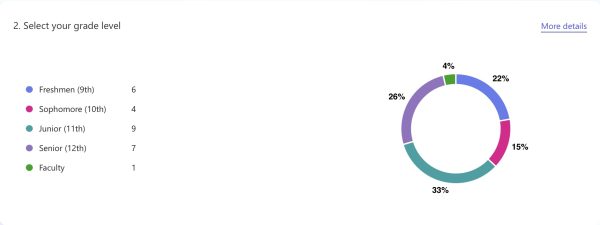
Overall, 48% of students consented to their responses being used, but preferred to remain anonymous with 41% consenting to both their names and responses being used. The remaining 11% did not consent to their responses being used, and their information will not be used for the story.
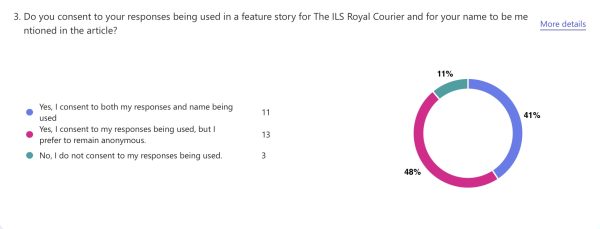
When asked about distinguishing between Type 1 and Type 2 Diabetes, 63% of participants said they knew the difference, while 19% did not. Another 19% answered “somewhat.”
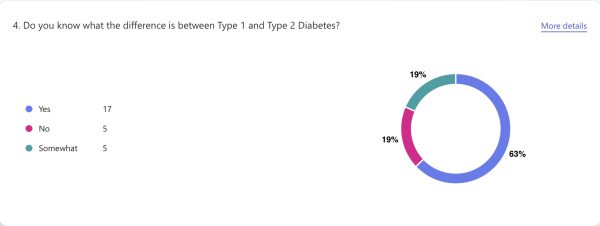
Around 44% say they encounter insensitive jokes or comments about diabetes occasionally, 41% rarely, and 7% experience them daily—while another 7% never hear them. As every comment matters, fostering kindness can make a difference.
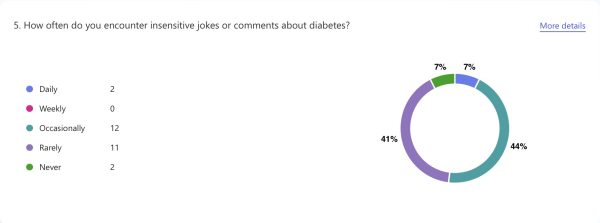
Survey results reveal that the most frequent insensitive remarks center around diet, followed by assumptions about lifestyle choices causing diabetes. Over-generalizations and teasing about medical devices are also common. Raising awareness can help combat these misconceptions.
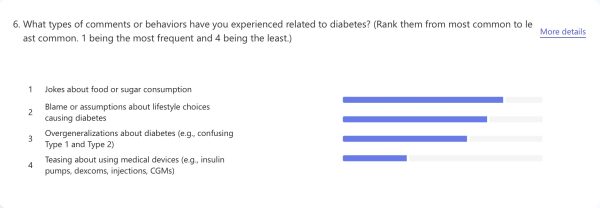
In response to insensitive comments or jokes about diabetes, 63% of respondents ignore them, 19% select “other,” 15% correct the person with accurate information, and 4% share how the comment affects them.
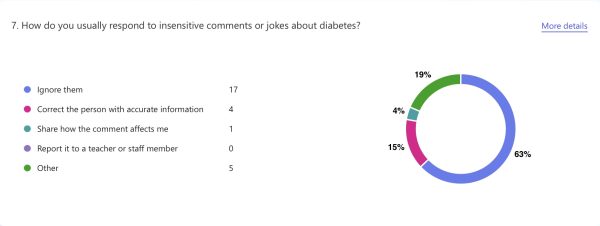
Approximately 63% of participants agreed that the school community is somewhat understanding of diabetes but does not always have an accurate perception of it. Additionally, 19% felt that the community is largely uneducated about diabetes, while 11% described it as insensitive or dismissive. Only 7% believed the community is very understanding and supportive.
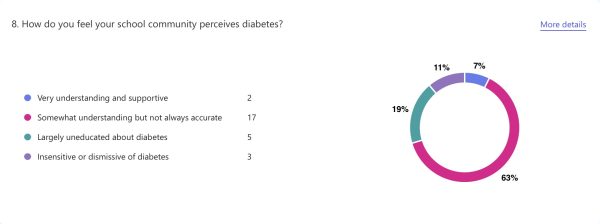
The most frequent remarks include jokes about food or sugar, followed by assumptions about lifestyle choices, misconceptions about diabetes types, and teasing about medical devices. These insights highlight the need for more awareness.

The top suggestion as to how diabetes education could be improved in school (44%) is incorporating it into health or religion classes, followed by sharing personal stories (30%) and hosting awareness events (23%). Education leads to understanding.
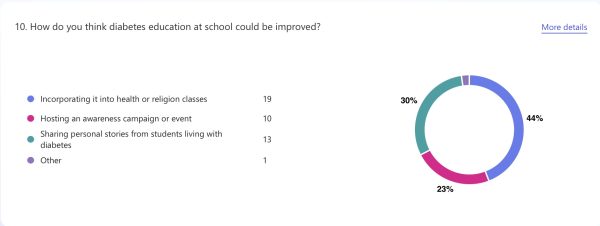
While 67% of respondents haven’t experienced being the target of insensitive comments or jokes about diabetes personally, 22% have witnessed it happen, and 11% have been directly affected.
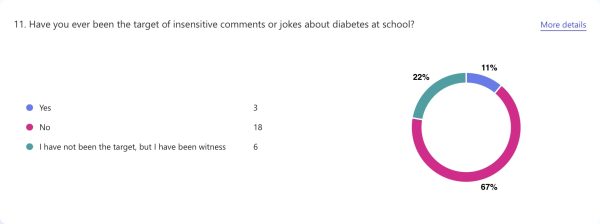
Using the information gathered through this survey, along with personal experiences of those personally affected by Type 1 Diabetes, the Royal Courier aims to foster a community that is well educated on a topic which holds deep relevance to many. Debunking common stereotypes and explaining uneducated assumptions are just a few of the things to be addressed in the second part of this series.
Finally, remember that even if Type 1 Diabetes is not something that affects you personally, it is still important to educate yourself on the realities lived by approximately 8.4 million people worldwide (PubMed Central).


